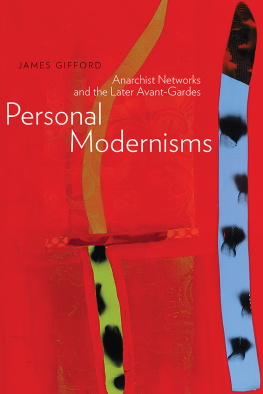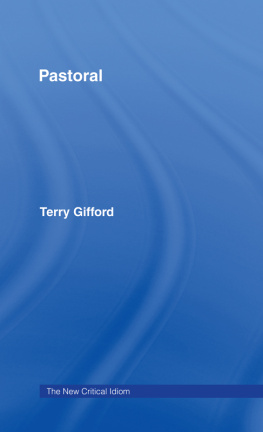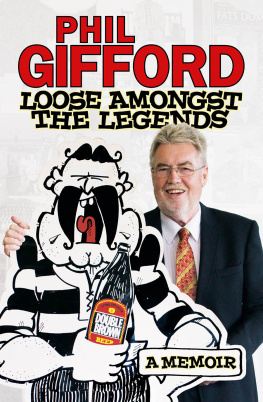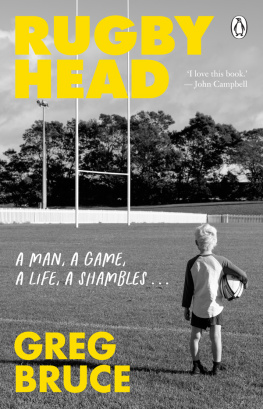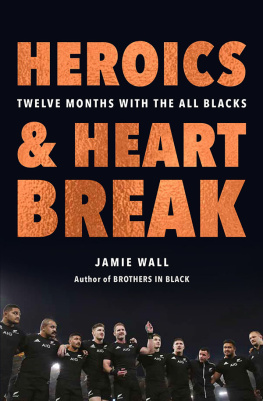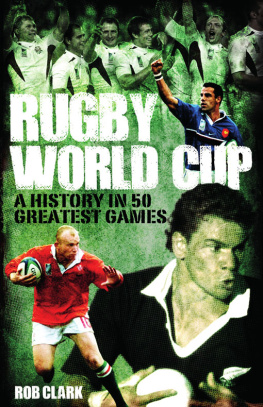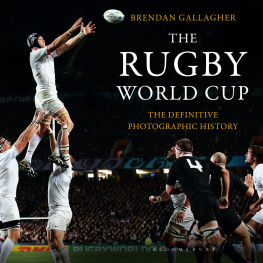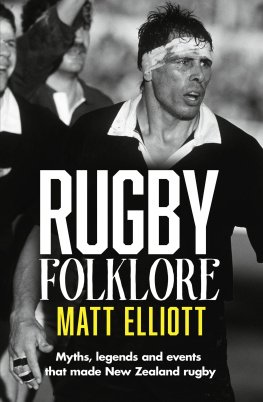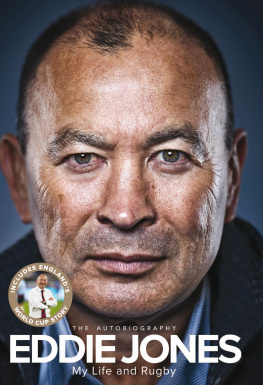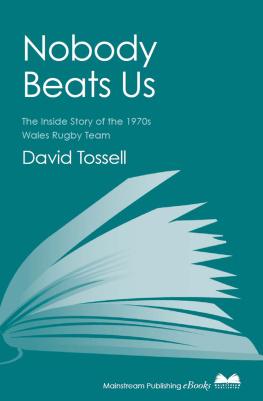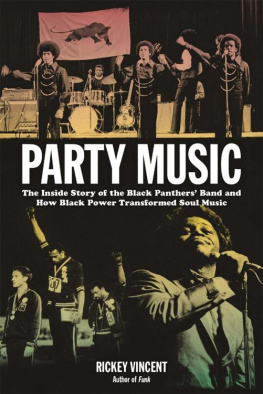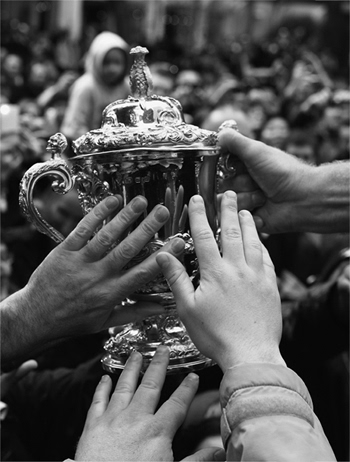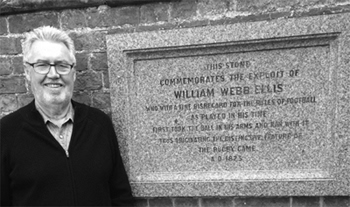A prolific writer and broadcaster, Phil Gifford has reported on every Rugby World Cup since 1987, and will be in Britain to cover the 2015 tournament.
He has won nine New Zealand radio awards, has twice been judged New Zealand sportswriter of the year, and three times New Zealand sports columnist of the year. He has also won two Dulux national print awards for news reporting, in 1976 (on the Captaine Bouganville shipwreck) and 1981 (on the Springbok tour). In 1973 Phil invented the satirical rugby character Loosehead Len, and wrote his columns for 32 years. He continues to write a column in the Sunday Star-Times, and in 2014 was a member of the Fairfax Media team at the Commonwealth Games in Glasgow. In 2010 Phil was honoured with the SPARC lifetime achievement award for services to sports journalism.
Phil lives in Auckland, with his wife Jan.
Foreword
The World Cup is hugely important to New Zealand. Rugby is our most recognised sport, and its been part of creating the history and fabric of this country for 120 years. Its something many New Zealanders are passionate about and extremely proud of, and rightly so. So when Rugby World Cups come along every four years theres huge expectation for us to win and to be world champions.
The All Blacks, particularly in recent years, have often been ranked No. 1 in the world, but have not necessarily been the world champions. The All Blacks dedicate themselves to being the best they can be both individually and as a team. Self-improvement is the backbone of that mentality. And the World Cup is the pinnacle of recognition for that commitment and dedication.
The people of New Zealand and the New Zealand media expect the All Blacks to perform at a high level all the time. I believe that those high expectations are helpful and positive. Some people see them as a negative, but personally I see it as an inspiration and a motivation to the guys who are playing and the people who are responsible for leading, managing and coaching the team. After all, the All Blacks by their performances and results have created this expectation. The pressure, the expectation, Im sure is now seen as a privilege rather than something to be avoided.
With most of the other sides in the world theres some leniency in non-World Cup years. Not for the All Blacks. They are expected to do the business and perform in every test. So when you get to World Cup time the All Blacks have less room for improvement. Theyve been playing at that level for a long time.
Many of the other countries seem to play better at the World Cup than they do normally. Thats the challenge. The other teams raise their games considerably. The French are a prime example. Theyll be exactly the same in 2015, theyll raise their game and theyll be difficult.
The other thing is that the World Cup is a one-off tournament, sudden death, so it is quite different from tournaments where you can lose a game and survive. So those things make it unique and more difficult. I guess thats why its called a World Cup.
A big change in our thinking going into 2011 was that when we looked at the Cup in 07, we took it one game at a time, just as we did when sides I was coaching had three Grand Slam tours in Britain and Ireland.
The thought process changed in 2011. We talked about pressure. We talked about expectations. We didnt avoid it. We walked towards it and embraced it.
We said things like, Pressure is a privilege. If youre not under pressure youre not going to do the business. We were very open about that. We were going to have pressure. We didnt know exactly what the pressure was going to be, so we had a philosophy of expect the unexpected and handle it.
The unexpected was Daniel Carter ripping the adductor tendon off the bone, and Richie McCaw breaking the metacarpal in his foot. They were the unexpected.
Probably the two most influential players in the team. Both injured. One out of the tournament, not even able to play in the finals. They were the unexpected.
Because we had that strategy the guys were able to handle it. They expected the unexpected and handled it.
The only problem was that Colin Slade did a similar thing to Daniel Carter in the next game, then Aaron Cruden did his knee in the final, and then, thank God for Beaver, Stephen Donald, and thank God for rotation.
The big difference now is that All Blacks embrace the pressure, and see it as a normal challenge you have to handle. They continue to do what the team of 20082011 started, a huge amount of work on mental strength and the ability of the mind to handle the occasion.
You can see that in the way this superb current team is playing. The number of games theyve won coming from behind in recent years, its obvious theyre handling that pressure.
To be able to win the World Cup twice (and only three countries in the world have done that) is marvellous. This year the All Blacks have the chance to make history, to win away from home for the first time, and to be the most successful country in Rugby World Cup history, by winning the Cup three times.
However, Im sure a number of other countries have different thoughts, different expectations. There are no guarantees!
Sir Graham Henry
All Blacks Coach, 200411
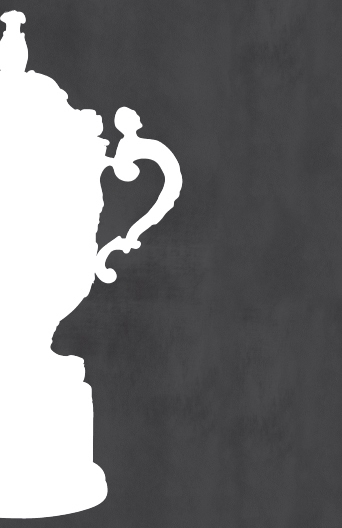
Getting it off the Ground
The accident and emergency ward at Auckland Hospital has been busy all day. Ambulances sweep up the rise off Park Road in Grafton, and officers ferry a weirdly large number of heart patients through the automatic doors to the cream-coloured admittance room.
Theres nothing unusual about this spring Monday morning in 1999. No sudden spikes in air temperature. No gridlocks on the motorways to raise stress levels. So why, at hospitals right throughout the country, are there a third more heart attack patients than usual?
Easy. The All Blacks just got eliminated from the Rugby World Cup in London. Numbers for acute angina, heart failure and arrhythmia all go through the roof. When the All Blacks lose in Sydney in the World Cup semi-final in 2003 its even worse. Heart attacks go up by 60 per cent.
How important is the World Cup to New Zealanders? A 2014report by two Christchurch doctors shows that for some fans, if the All Blacks dont win, it can literally be heart breaking.


